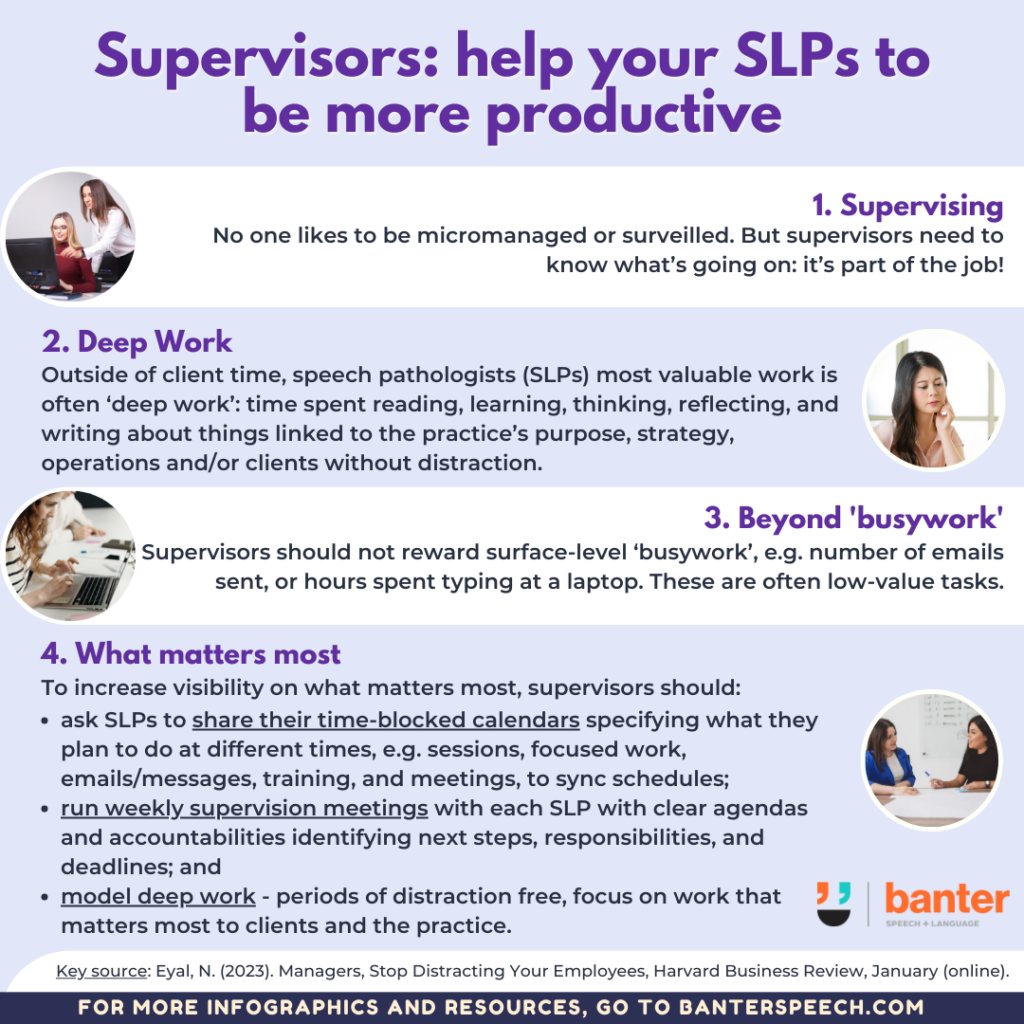Supervisors: help your SLPs to be more productive
No one likes to be micromanaged or surveilled. But supervisors need to know what’s going on: it’s part of the job!
Outside of client time, speech-language pathologists (SLPs) most valuable work is often ‘deep work’: time spent reading, learning, thinking, reflecting, and writing about things linked to the practice’s purpose, strategy, operations and/or clients without distraction.
Supervisors should not reward surface-level ‘busywork’, e.g. number of emails sent, or hours spent typing at a laptop. These are often low-value tasks.
To increase visibility on what matters most, supervisors should:
- ask SLPs to share their time-blocked calendars specifying what they plan to do at different times, e.g. sessions, focused work, emails/messages, training, and meetings, to synch schedules;
- run weekly supervision meetings with each SLP with clear agendas and accountabilities identifying next steps, responsibilities, and deadlines; and
- model deep work – periods of distraction free, focus on work that matters most to clients and the practice.
Key source: Eyal, N. (2023). Managers, Stop Distracting Your Employees, Harvard Business Review, January (online).

Related articles:
- For speech pathologists in private practice, professionalism has never been more important
- SLP mentors and supervisors – fight for your rights to avoid burnout
For more on supervision, check out our book “How to supervise speech pathologists properly in private practice“.
This infographic also appears in a recent issue of Banter Booster, our weekly round up of the best speech pathology ideas and practice tips for busy speech pathologists, speech pathology students, teachers and other interested readers.
Sign up to receive Banter Booster in your inbox each week:

Hi there, I’m David Kinnane.
Principal Speech Pathologist, Banter Speech & Language
Our talented team of certified practising speech pathologists provide unhurried, personalised and evidence-based speech pathology care to children and adults in the Inner West of Sydney and beyond, both in our clinic and via telehealth.








